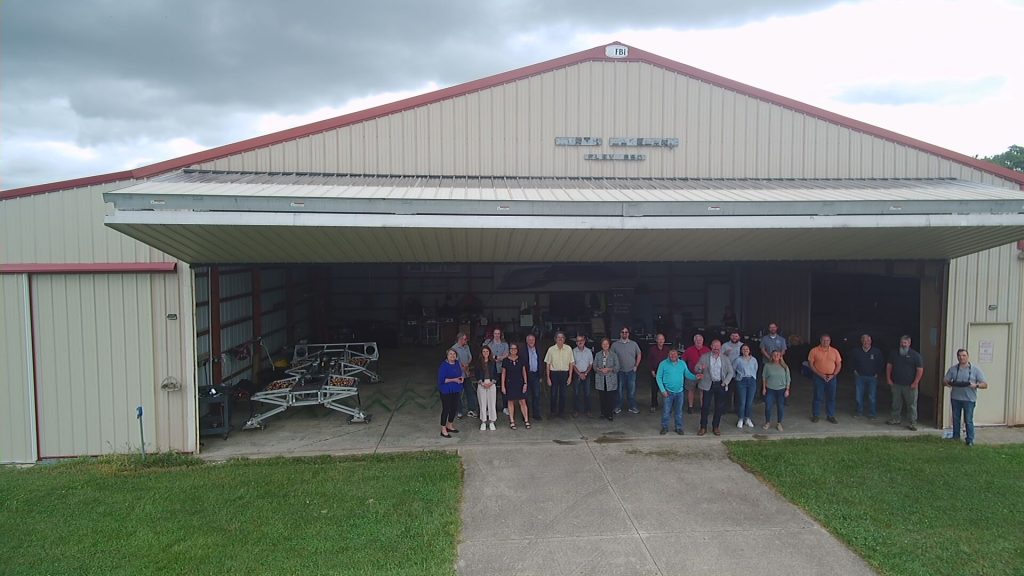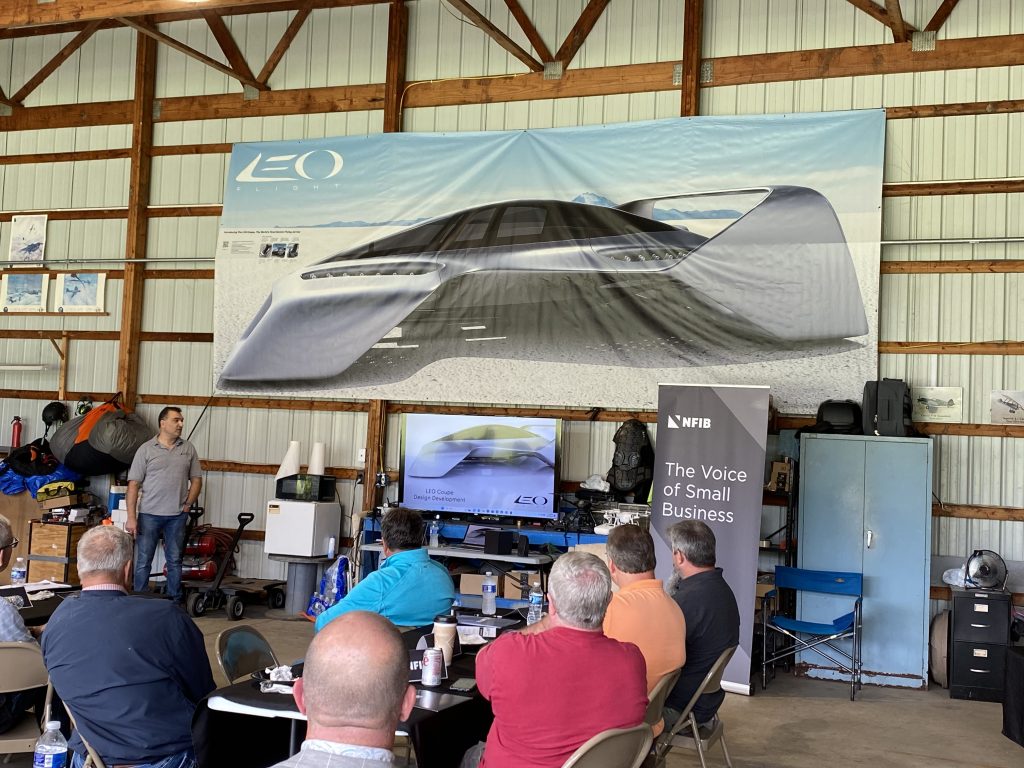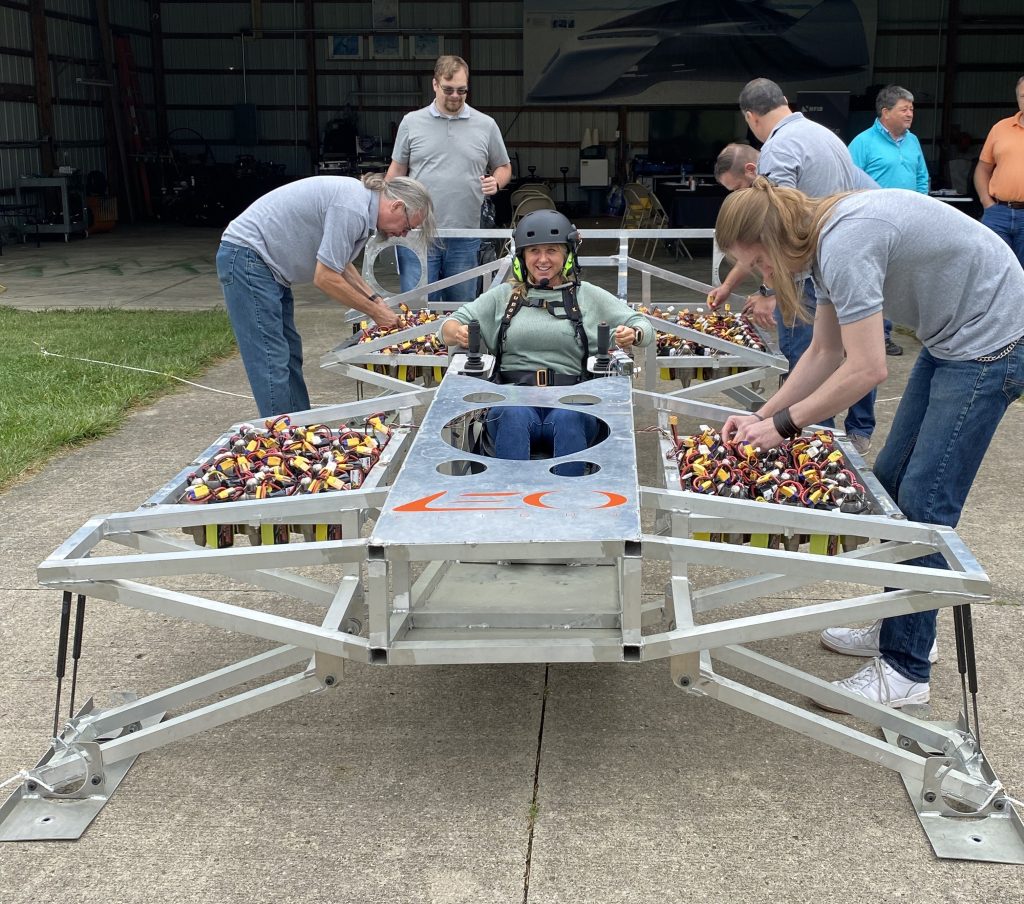Leadership Council Meeting discussion included high and new taxes, problems hiring qualified workers.
On Tuesday, September 12, about 30 NFIB small business owners gathered at fellow member Pete Bitar’s hangar in Anderson to discuss important small business issues. During the Leadership Council meeting, they also interacted with local and state lawmakers, sharing their stories, frustrations, and ways legislators can help their businesses flourish.

Top concerns for Indiana Leadership Council members include rising property taxes, as well as worker shortages. Many small business owners have open positions they desperatly want to fill yet can’t find any qualified applicants.
Host Pete Bitar formed LEO Flight Corporation in the Spring of 2020 believing that it was the right time to push the limits of technology through the design of flying cars. Bitar’s goal is to turn the idea of cars in the sky from science fiction to reality. His invention, the LEO Coupe, brings together the future of flight, high-speed, safe, and personal travel into an actual tangible car.

Indiana NFIB members listen as Pete Bitar explains how his small business, LEO Flight, is pushing the boundaries of technology through flying cars.
Bitar presented his brainchild to fellow NFIB Leadership Council members at his hangar and then the group got to check out his latest technologies. They put State Director Natalie Robinson behind the wheel of his flying vehicle prototype and she looks like a pro!

State Director Natalie Robinson tries her hand at one of Bitar’s flying car models.
“As we start the fall season and head into the start of the legislative session in January, it’s obvious that small business owners are still dealing with inflation and labor shortages,” said Natalie Robinson, NFIB State Director in Indiana. “The common theme from Bitar and other small business owners at the table was that inflation, coupled with labor shortages are now their most concerning problems and has forced many of them to increase prices and wages. They asked lawmakers to do more to not only curb inflation but fill the thousands of open positions across the state, which in turn will stop hindering owners’ ability to grow and expand, but ultimately improve the entire state’s economy.”
Small business owners told present lawmakers that the state is falling short when it comes to education. Using their experience, small business owners said they would like to develop some recommendations to share with the Governor’s Workforce Development Cabinet with the goal of increasing Indiana’s high school graduation rate and expanding opportunities for skilled and unskilled workers.
As always, small business owners are worried about taxes. Recently, the legislature created a task force to make recommendations on possible tax reform. The task force will study the impact of eliminating income taxes, ways to address rising property taxes, and the whether corporate taxes are in need of reform. With that being said, the small business owners gathered in the room are worried about the possibility of the legislature creating a new sales tax on services.
Looking towards next year, Robinson previewed the top priorities for the 2024 legislative session as outlined below.
2024 Small Business Growth Agenda
- Taxes Support reduction or elimination of state individual income tax and oppose increased business taxes or creation of a sales tax on services.
- Labor Oppose employee misclassification penalties, minimum wage, mandatory paid leave, and new private rights of action.
- Regulations Defend against government overreach, support regulatory sandbox for entrepreneurs, and increase small business input on compliance issues.
- Healthcare Increase competition, prohibit all dishonest billing practices, and oppose increases to the Medicare reimbursement rate that result in higher taxes.
- Energy Support reliable, sustainable, and affordable energy policies. Oppose subsidizing electric vehicle infrastructure at the expense of employers.
- Workforce/Education Support strengthening college and career readiness for Indiana students, expansion of job training programs for students and adults, and access to affordable housing.
